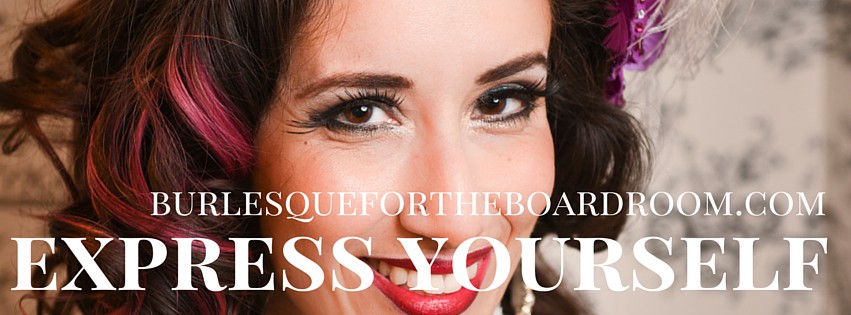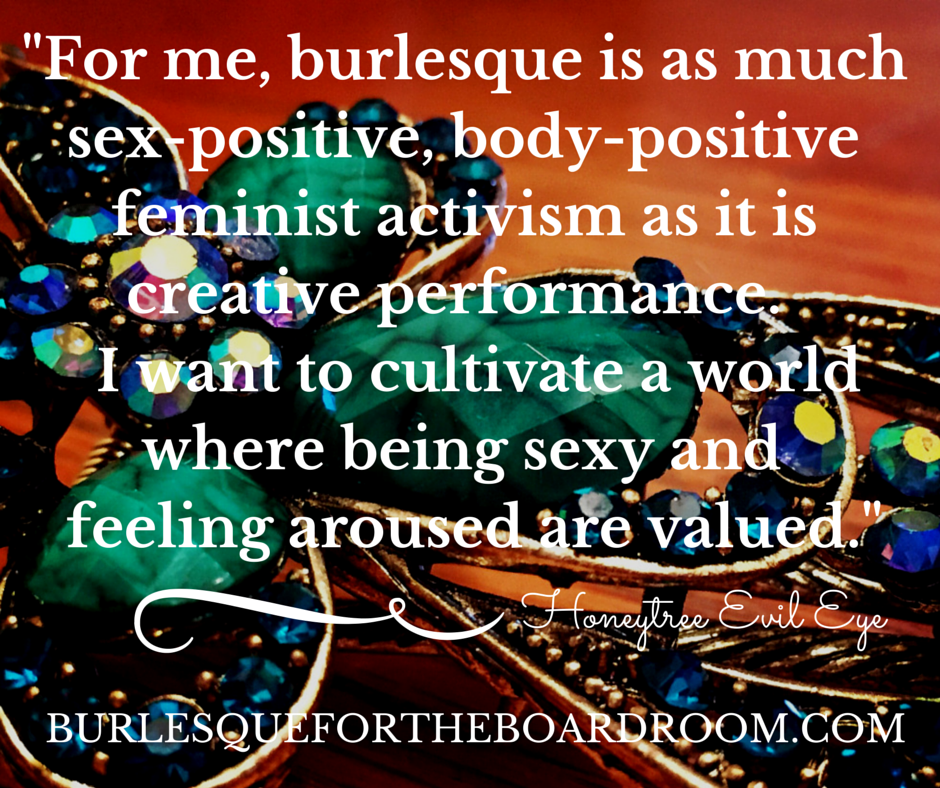As I define it, objectification is the act of treating a person as a thing, disregarding their dignity. It is disregard a person’s intellectual, emotional, and spiritual abilities. It is an act that minimizes agency and the voice of a person.
I’m certainly not speaking for every burlesque artist on this matter. I can only speak for the work of Sinner Saint, my troupe. We believe our work does the opposite of objectify women...it re-humanizes women.
Our performances are designed to give voice to the multifaceted qualities, emotions, personalities, stories and experiences of women. Through embodied story-telling we challenge internalized oppression, and explore the range of experiences being human what has to offer.
The key defining part is that we create empathy between ourselves and an audience. We reconnect the intellectual, emotional and spiritual self to the physical body.
As a burlesque performer, it’s critical for our audience to be able to know how we feel. Defined eyebrows play a significant role in facial recognition and help us develop a strong empathetic bond with our audience members.
Mirror neurons also assist in this process. Mirror neurons help us immediately and instinctively understand another person’s thoughts, feelings and intentions. They help us mimic others as a way of connecting and learning.
Mirror neurons are a type of brain cell that responds equally when we perform an action as when we witness an action. If you’ve ever watched someone stub their toe and felt your own body recoil with pain…or watched a scary movie and jumped out of your seat when something scary happened then you’ve been experiencing the effect of mirror neurons. It is what is at play when you begin to have an emotional or somatic experience even though you yourself might not be directly experiencing the event.
Having bold, well-defined eyebrows helps performers and leader present a strong and clear emotional affect. That emotional presence helps us convey the story we are telling vibrantly and to reconnecting and re-humanizing others. We can convey a richer complexity of emotions, and have a greater, more memorable influence on the audiences as a result.


 RSS Feed
RSS Feed
